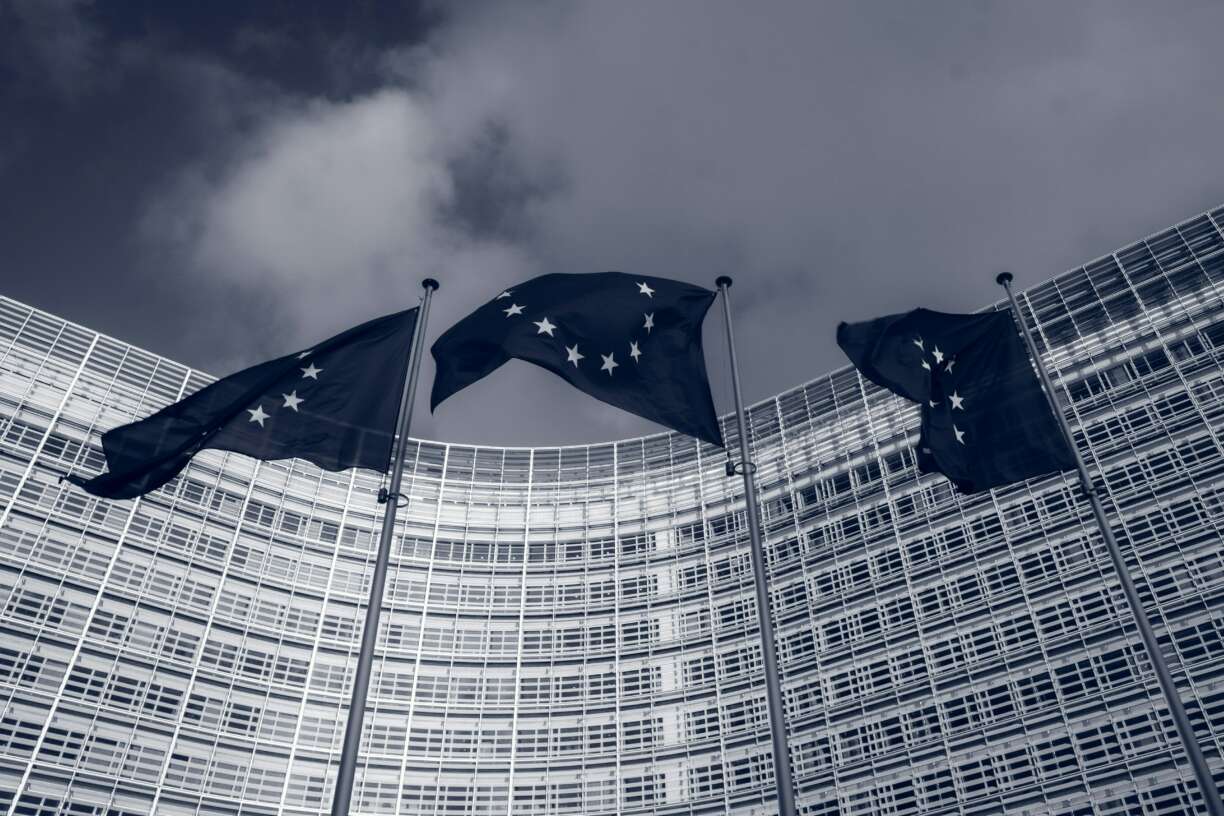January 13, 2025
Exploring the EU's path to digital sovereignty amid growing geopolitical challenges and reliance on foreign tech giants

AlgoSoc principal investigator Prof. José van Dijck, Distinguished University Professor of Media and Digital Society at Utrecht University, The Netherlands, co-authored the policy study Time to Build a European Digital Ecosystem: Recommendations for the EU’s Digital Policy, commissioned by the European Parliament. This study explores the EU's path to digital sovereignty amid growing geopolitical challenges and reliance on foreign tech giants.
The European Union is at a crossroads in its digital transformation, with geopolitical tensions and growing dependence on foreign tech giants highlighting the need for greater technological sovereignty. This policy study, which can be accessed here, addresses the crucial steps required for the EU to reduce its digital dependencies and build a more resilient, autonomous, and socially inclusive digital ecosystem. The study emphasises the importance of enforcing existing digital regulations and creating a European Digital Industrial Policy (EDIP) to drive innovation and secure European values.
Critical recommendations for the new European Commission focus on creating a unified digital industrial strategy, including developing a EuroStack, a European technology framework encompassing hardware, infrastructure, AI, data, and governance. Public institutions should lead by adopting European[1]made technologies, setting standards, and investing in crucial infrastructure. A strengthened digital commons model, including open and interoperable systems, can help counter Big Tech's monopolistic control and ensure inclusivity and sustainability in digital governance.
“This policy study addresses the crucial steps required for the EU to reduce its digital dependencies and build a more resilient, autonomous, and socially inclusive digital ecosystem”
The study also stresses the need for sustainable AI development, calling for energy-efficient, renewable solutions to meet the growing demands of AI applications. Public investments in AI must be tied to societal benefits rather than competing with Big Tech. A progressive AI regulation approach should foster fair competition and democratic decision[1]making while promoting innovation across European AI value chains.
Effective enforcement of EU digital rules is paramount. The study highlights the importance of enforcing regulations like the Digital Services and Markets Acts and GDPR, particularly around algorithmic transparency and the protection of users' data. The EU must also address the accountability of algorithmic management at work, ensuring that workers' rights are protected through social dialogue and transparent decision-making processes.
Ultimately, the EU must pursue a strategic overhaul to secure its digital sovereignty, balancing legislative measures with capacity building and advancing a digital future grounded in European values of fairness, sustainability, and innovation.
Apart from Prof. José van Dijck, the study was written by Prof. Francesca Bria, Dr. Johnny Ryan, Sophie Bloemen, Matthias Pfeffer, Leevi Saari, Dr. Fabian Ferrari, Prof. Antal van den Bosch, and Annarosa Pesole.
More results /
 Je medisch dossier inladen in nieuwe functie ChatGPT? Denk 10.000 keer na
Je medisch dossier inladen in nieuwe functie ChatGPT? Denk 10.000 keer na
By Natali Helberger • January 19, 2026
By Roel Dobbe • November 24, 2025
By Roel Dobbe • November 12, 2025
 Combatting financial crime with AI at the crossroads of the revised EU AML/CFT regime and the AI Act
Combatting financial crime with AI at the crossroads of the revised EU AML/CFT regime and the AI Act
By Magdalena Brewczyńska • January 16, 2026
By Sabrina Kutscher • July 02, 2025
By Natali Helberger • March 06, 2025
By Maurits Kaptein • June 06, 2025
By Leonie Westerbeek • November 22, 2024
 Clouded Judgments: Problematizing Cloud Infrastructures for News Media Companies
Clouded Judgments: Problematizing Cloud Infrastructures for News Media Companies
By Agustin Ferrari Braun • January 29, 2026
By Fabio Votta • November 05, 2025
By Ernesto de León • Fabio Votta • Theo Araujo • Claes de Vreese • October 28, 2025





